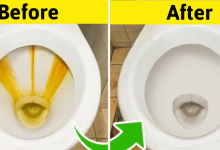By Jamie Birdwell-Branson
Let’s face it: Nobody strives to win a gold medal in household chores. But examining your approach to these tasks may reveal that you’ve been relying on the wrong methods, resulting in wasted time, effort, and money. Here are 11 common home maintenance blunders to avoid if you want a spotless and safe household.
Using Too Much Laundry Detergent
When doing laundry, many people fill the cap to the brim with detergent. As it turns out, though, there’s merit to following the directions on the packaging. Using too much soap will make your clothes feel greasy, and the suds can trap excess bacteria in the creases of the fabric—yuck!

Washing Your Chicken
When cooking a chicken dinner, your parents probably washed the raw bird in the sink to kill off any bacteria. Nowadays experts warn against this outdated practice, since holding a chicken under running water may cause harmful microbes to splash on towels as well as countertops and other kitchen surfaces. Minimize the risk of salmonella poisoning by taking the poultry directly from the packaging to the pan.

Putting Knives in the Dishwasher
Dishwashers are extremely convenient appliances that save you from having a pileup of dirty dishes in the sink, but you shouldn’t rely on the machine to wash everything in your kitchen drawers—for example, your knives. Running your knives through a dishwasher dulls the blades over time, which can make them more dangerous to use. Carefully hand-wash your knives to keep them sharp and sparkling clean.

Relying on Your Oven’s Self-Cleaning Feature
Although many homeowners swear by their oven’s self-cleaning mode to eliminate caked-on food particles, the setting can harm your appliance and compromise your home’s air quality. Keep your oven clean by pouring salt over spills as they happen. At hot temperatures, the salt turns food residue into ash, which can then be wiped away with a towel once the oven cools.

Ignoring Your Ceiling Fan
Most people neglect to clean their ceiling fan—until they notice a small mountain of dust collecting on top of each blade. Instead of using your regular feather duster to get the job done, reach for a pillowcase instead. Wipe the surface clean and flip the case inside out to collect the dirt, which prevents allergy-inducing particles from traveling down to the bed or floor.

Drying Towels with Fabric Softener
Fabric softener makes towels feel incredibly soft, but it can also reduce the absorbency of the fabric and trap unpleasant mildew smells. To increase the lifespan of your towels, skip the softener on laundry day and opt for detergent only.

Washing Hardwood with Water
Though wood floors are more hygienic than carpet, the smooth surface shows every speck of dirt and grime. Resist the urge to wash them with soap and water, which may warp and damage the wood, and opt for a wood-cleaning product instead. Work the product into your floor with a slightly damp rag mop to polish, shine, and deep-clean.

Mishandling Your Cast Iron
Cast-iron cookware requires regular cleaning to maintain its long-lasting durability, but you should never put cast-iron pans in a dishwasher. Similarly, you should never wash cast iron with dish soap or allow the material to air-dry, since these practices can create rust spots.

Not Cleaning Your Toilet Brush
After cleaning the toilet, most of us absentmindedly plop our wet scrubber back into its holder on the floor. Unfortunately, the brush can grow bacteria and germs in its container—and a dirty brush will never get the toilet truly clean. Be sure to clean your toilet brush and soak the toilet brush container in antibacterial cleaner once in a while, and ensure that the brush is completely dry before storing.







